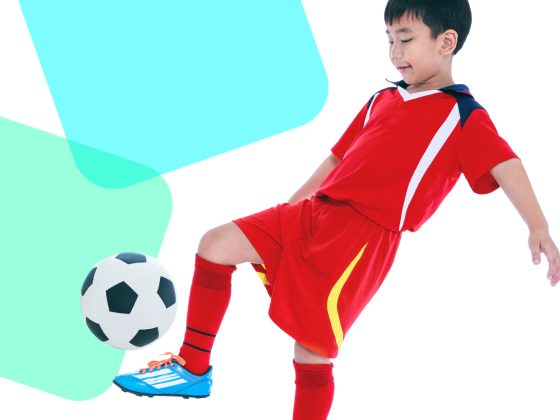
Why Is Physical Play Important?
Play helps children develop gross motor skills and more. Learn about ways you can support physical play.
Little ones are constantly developing their bodies in new ways, learning to jump, climb, skip, and hop—skills that build on one another. Developing gross-motor, or large-muscle, skills helps increase kids’ strength, coordination, and confidence. Here are some ways you can help:
- Introduce a tricycle or pedaling toy.
- Encourage kids to climb and swing at the playground.
- Play catch or kick a ball.
- Get kids involved in individual or group activities such as soccer, jump rope, or swimming.
- Put on some music and dance!
Small-muscle, or fine-motor, skills are another big part of development. Hand-eye coordination lets kids draw, scribble, and write—all important skills for school. Consider these ways to build fine motor skills:
- Do art projects that include drawing, cutting with safety scissors, and pasting.
- Do puzzles that have pieces of different sizes.
- Provide toys that allow for sorting or stacking.
- Play with trains or cars that need to be pushed along a track.
- Create objects by molding clay.
- Give kids practice with buttons and snaps.
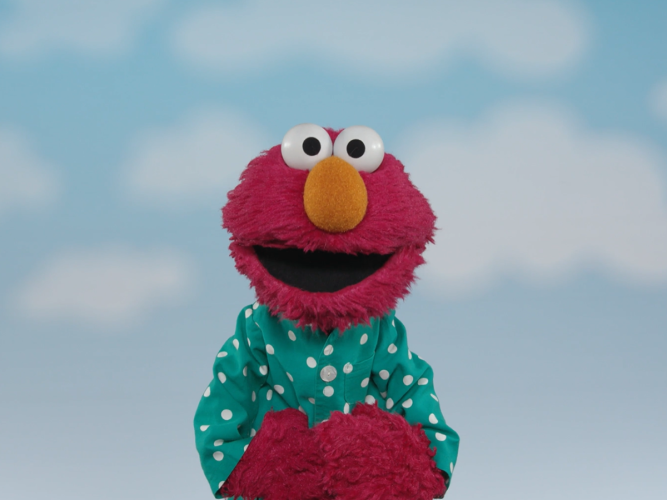
Listen, Feel, and See with Elmo
When children are in the hospital, this mindfulness game can help them soothe themselves.
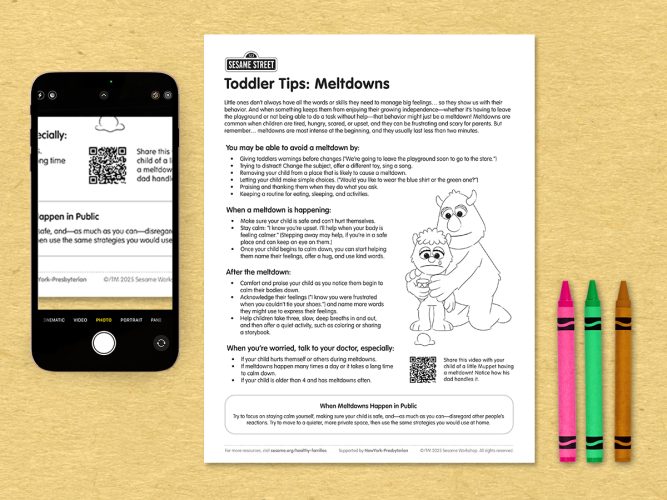
Toddler Tips: Meltdowns
Strategies for during and after a meltdown…and even some ways meltdowns might be avoided.
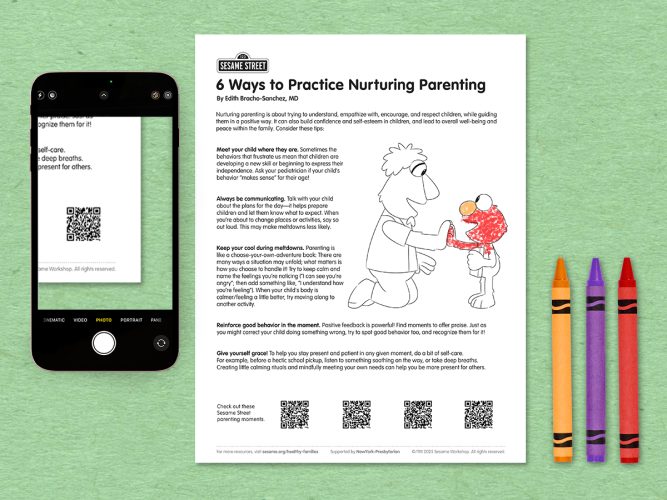
6 Ways to Practice Nurturing Parenting
Tips from a pediatrician on understanding, empathizing with, encouraging, and positively guiding children.
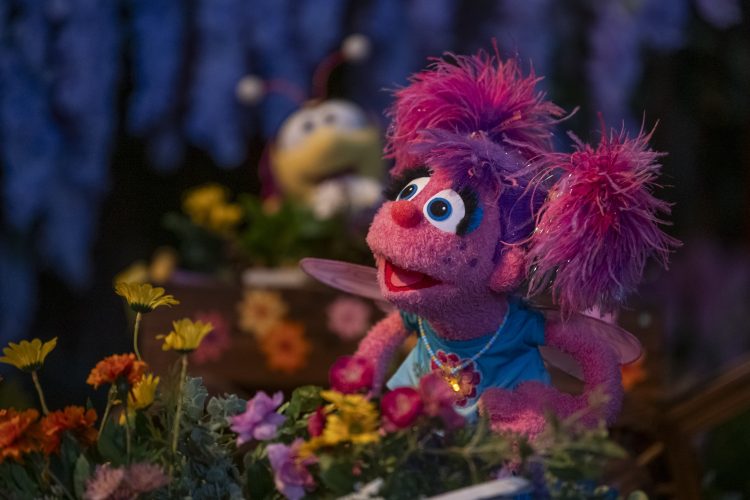
Watch and Play: Abby's Magical Beasties
Watch this episode and explore ways to extend the learning at home.
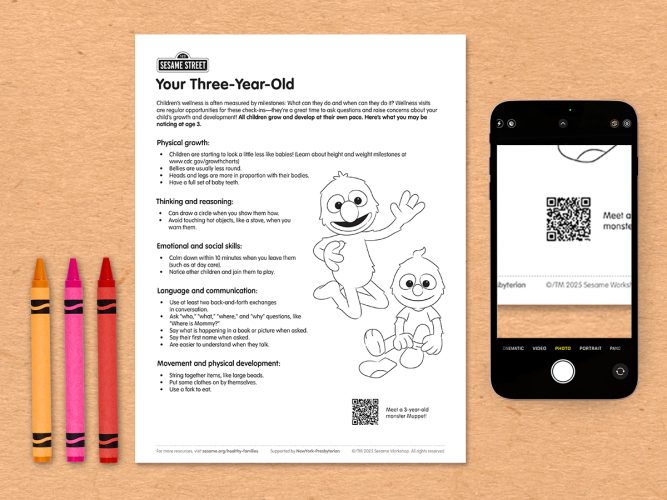
Milestones: Your Three-Year-Old
All children grow and develop at their own pace; use this chart to guide your expectations and observations so you can talk to your child’s pediatrician about questions or concerns.
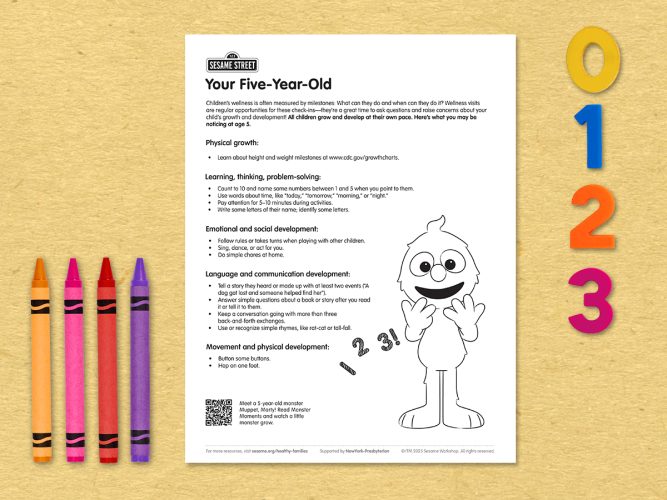
Milestones: Your Five-Year-Old
All children grow and develop at their own pace; use this chart to guide your expectations and observations so you can talk to your child’s pediatrician about questions or concerns.
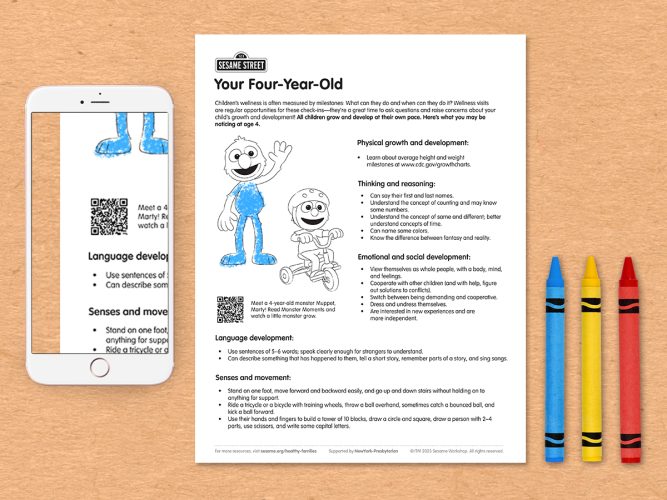
Milestones: Your Four-Year-Old
All children grow and develop at their own pace; use this chart to guide your expectations and observations so you can talk to your child’s pediatrician about questions or concerns.
